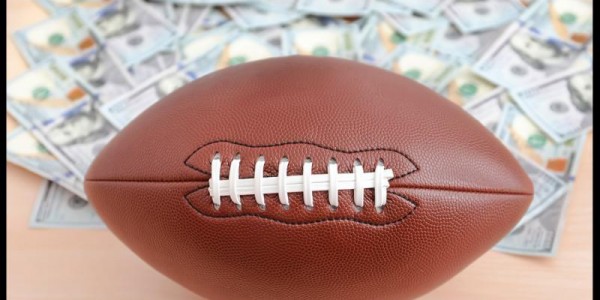By: Robert B. George, Esquire
Many of your co-workers are probably still wracked with football fever. Whether they were cheering for their favorite team (the Eagles, of course), the halftime show, or the much-talked-about commercials, it’s a good bet that most of your co-workers tuned into at least part of the Super Bowl game-day programming. It is likewise a good bet that one of those all too familiar Super Bowl pools made its way around your workplace, probably a “square pool” in which individuals place their name or initials in various random blocks. (I’m pleading the Fifth about whether it made its way around our law firm ….)
On the surface, this all seems like a lot of good clean fun. However unless a Super Bowl squares pool falls within a state-specific “recreational gaming” exception, the contests probably violate the law. Gambling is still illegal in most jurisdictions, even at work and even when it’s just over football. Both federal law and most state laws prohibit gambling. The Professional and Amateur Sports Protection Act of 1992 prohibits gambling on sports in most states, and the Interstate Wire Act of 1961 has been interpreted to prohibit online betting. In some states, gambling is a misdemeanor. However, in others, while gambling is generally prohibited, gambling at work may be considered an exception under certain circumstances. Nevertheless, it’s expected that millions of workers participate in office pools related to the Super Bowl.
Under the gaming laws of all 50 states, any contest is deemed to be illegal if it involves three elements: consideration (generally an entry fee), prize, and chance. Although the definition of “chance” varies by state, all 50 states recognize that any play-for-cash contest that is based entirely on chance is illegal. Because squares pools involve randomly assigned numbers, the contest is entirely based on chance, and thus illegal, unless it falls within a state-specific “recreational gaming exception.” Meanwhile, under federal law, the Interstate Wire Act of 1961 disallows individuals from “engaging in the business of betting or wagering [through the knowing use of] a wire communication for the transmission in interstate or foreign commerce.” Based on this law, any Super Bowl squares pool conducted across state lines, or on the Internet, would seem to violate federal law. Behaviors that could bring a contest under legal scrutiny would be collecting money and paying out winners via money payment sites such as PayPal.
Another federal law that seems to prohibit online, pay-to-enter Super Bowl squares pools is the Professional and Amateur Sports Protection Act (“PASPA”). Passed in 1992 at the behest of America’s five premier professional sports leagues (including the NCAA), PASPA makes it illegal for any private person to operate a wagering scheme based on a competitive game in which “professional or amateur athletes participate.” Because the results of squares pools are based on the final score of the Super Bowl, such pools very likely violate this statute.
Fortunately, state and federal governments are not dedicating resources to detect and prosecute squares pools. However, eemployers should take this opportunity, however, to clearly delineate their policies about gambling and communicate these policies to their employees. To eliminate any confusion, employers should relay the applicable state law on gambling to employees, and define exactly which acts are covered under the law.
The attorneys at the Law Firm of DiOrio & Sereni, LLP are experienced and available to help you. Contact Robert B. George, Esquire at 610-565-5700, or send him an e-mail at [email protected].
Like what you see? Join our mailing list











